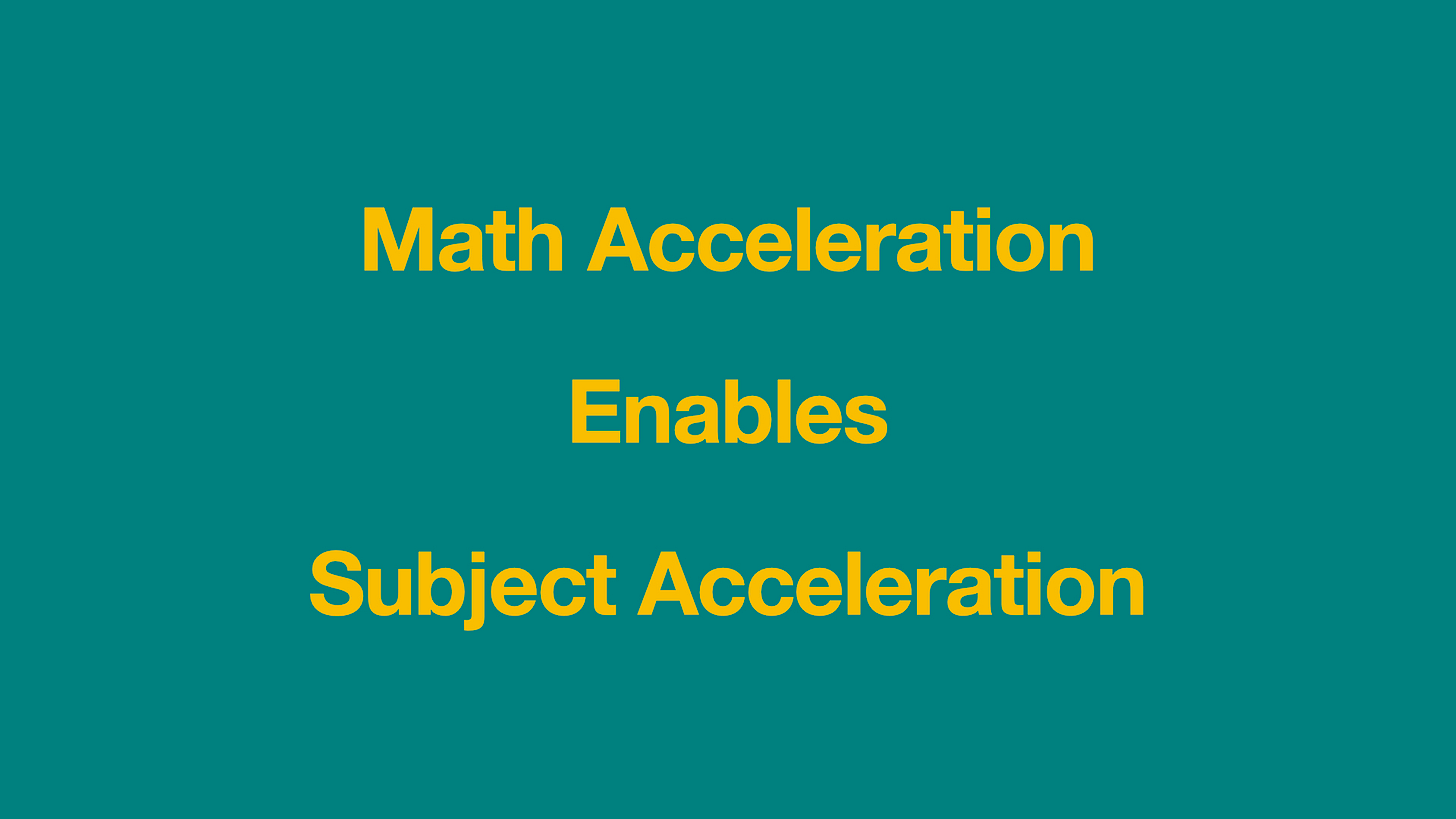Math Reflections: Math as a Gatekeeper & Writing as Thinking
When math is “out of the way,” it unlocks deeper thinking in physics, chemistry, statistics, logic, etc.
Happy Friday, Friends!
Today’s Journey includes two reflections: one for everyone, and a bonus one for paid subscribers.
The two reflections are:
How Math Acceleration Enables Other Subjects
Writing as Thinking (Book Edition) — for paid subscribers only
Let’s start with the first...
I. Math Acceleration Enables Other Subject Acceleration
We’ve talked about math acceleration before:
What surprised us, though, as our kids moved into high school-level subjects (and occasionally into early college material), was how often math becomes the bottleneck for understanding other subjects.
We, the parents, are long past our own high school years, and had forgotten how much algebra (and later, calculus) shows up everywhere.
Whether it was YouTube, Khan Academy, MIT's OCW, and others, as we introduced the kids to topics like chemistry, biology, or physics, they were immediately curious.
However, when we tried to answer their question,s we kept saying things like:
That's actually easier to explain once you've seen algebra
We'll come back to this after we cover a bit of calculus
That's a good question; we need a bit more math to explain that
Basically, we’ve found that many subjects can’t fully open up until you’ve “gotten algebra out of the way” or even pre-calc or calculus.
Examples we've run into:
Physics: Algebra-based physics is fine, but calculus opens up the why behind velocity and acceleration.
Chemistry: Balancing equations, understanding reaction rates, and pH scaling all become easier with a feel for algebra
Statistics: So many concepts in probability, expected value, and distributions require algebraic structure
Biology: Pre-calc helps when modeling populations, feedback systems, or enzyme kinetics
We didn't need to accelerate everything, but math becomes a force multiplier, or maybe more accurately, a gatekeeper, especially in STEM subjects at the high school and college levels.
For example, one of our kids was watching a video on chemical reactions (read: explosions) and had some questions about how/why the chemical reactions occurred at different rates. To really answer it, we needed algebra and a taste of calculus.
Another time, one of our kids was looking at population growth models (high school biology) and wanted to know if you could predict the maximum and minimum of population sizes based on historical data. Algebra, Calculus, and statistics are needed to answer this question.
Question for your family/kid:
What subject(s) suddenly “unlocked” once math wasn’t a blocker? (Feel free to hit reply and let me know. We love hearing how this shows up in other families!)
To the free subscribers, thank you so much for being part of this journey. I hope today’s reflection was helpful. If you know someone who might enjoy this too, feel free to forward it!
For more Kids Who Love Math treats, check out our archives
Have a wonderful weekend!
All the best,
Sebastian
PS. Upgrade to read the second reflection, get a writing prompt activity to do with your kid, as well as a link to a fun video that ties in with the second reflection and is a great lesson in communication, logic, and patience.
II. Writing as Thinking (Book Edition)
The first thing we noticed when we started writing Number Theory for Kids was this: We thought we understood a concept until we had to write it down clearly for someone else.
Keep reading with a 7-day free trial
Subscribe to Kids Who Love Math to keep reading this post and get 7 days of free access to the full post archives.


